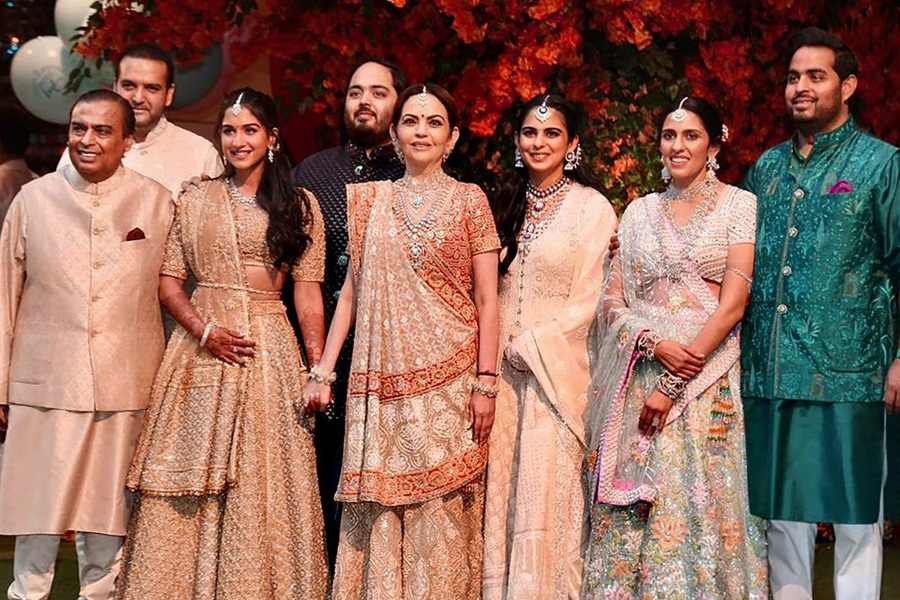
The issues discussed here do not pertain solely to the Ambanis, but attempt to tackle some broader questions regarding the question of private consumption by the rich.
Author
Rahul Menon, Associate Professor, Jindal School of Government and Public Policy, O.P. Jindal Global University, Sonipat, Haryana, India.
Summary
The lavish and extended wedding celebrations of billionaire Mukesh Ambani’s youngest son has brought to the forefront the question of “conspicuous consumption” of the rich. In a capitalist society beset by high levels of inequality, how do we make sense of such displays of private wealth by the elite? Does billionaire consumption in an unequal society hinder or aid economic expansion? What are some of the ethical and economic issues involved? The issues discussed here do not pertain solely to the Ambanis, but attempt to tackle some broader questions regarding the question of private consumption by the rich.
A defence of billionaires’ consumption would run as follows: in a liberal capitalist democracy, there are no restrictions on what one chooses to do with one’s private property. Assuming that market processes are fair, billionaires’ consumption expenditure — no matter how lavish — is a legitimate exercise of their private freedoms and cannot be faulted. The existence of inequality is not their concern, but the manifestation of flawed policy that restricts market freedom and curtails pure competition. Increasing market access, in this view, would ensure that everyone has adequate wealth.
Published in: The Hindu
To read the full article, please click here.

